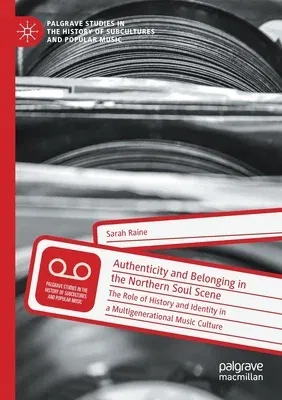Sarah Raine
(Author)Authenticity and Belonging in the Northern Soul Scene: The Role of History and Identity in a Multigenerational Music Culture (2020)Paperback - 2020, 30 June 2021

Qty
1
Turbo
Ships in 2 - 3 days
In Stock
Free Delivery
Cash on Delivery
15 Days
Free Returns
Secure Checkout
Part of Series
Palgrave Studies in the History of Subcultures and Popular M
Print Length
207 pages
Language
English
Publisher
Palgrave MacMillan
Date Published
30 Jun 2021
ISBN-10
3030413667
ISBN-13
9783030413668
Description
Product Details
Author:
Book Edition:
2020
Book Format:
Paperback
Country of Origin:
NL
Date Published:
30 June 2021
Dimensions:
21.01 x
14.81 x
1.3 cm
Genre:
British
ISBN-10:
3030413667
ISBN-13:
9783030413668
Language:
English
Location:
Cham
Pages:
207
Publisher:
Weight:
299.37 gm

